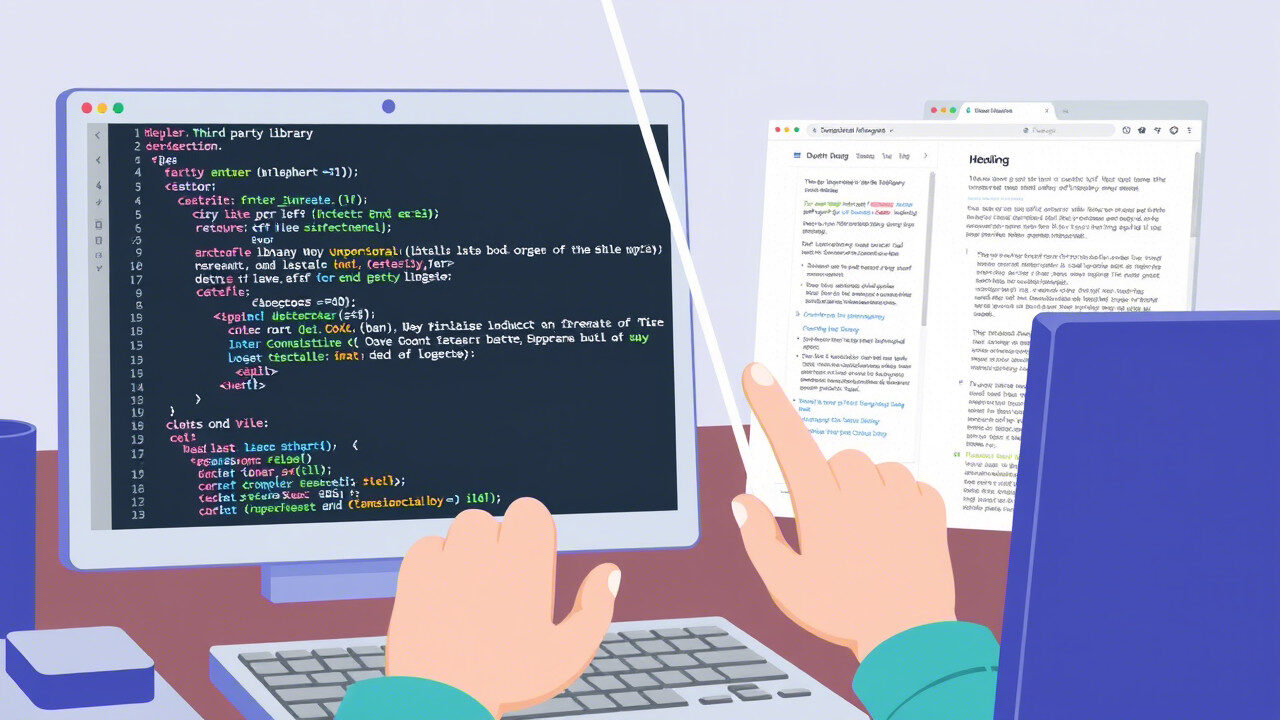GitHub Copilot is a fantastic tool; however, like any AI-powered assistant, it has limitations, especially concerning external codebases and libraries. Pieces of code lifted from third-party libraries or APIs may not be understood by Copilot, which can cause interruptions in workflows and development slowdowns, most especially when building complex applications with external dependencies.

Most of the time, integration issues with libraries or improper dependency management cause this for Copilot not to take into account the general picture of how your project is put together. In this blog post, we will discuss why these things happen and proceed further to fix them step-by-step.
May that be with REST APIs, with popular frameworks, among these TensorFlow or React, or even some other niche packages-they better ensure Copilot understands their project dependencies well and integrates accordingly.
🧠 Why Copilot Struggles with Third-Party Libraries and APIs
Before jumping to the solution, it’s essential to understand the underlying challenges. Copilot generates suggestions based on context within your editor and training data from public repositories. However, it lacks live awareness of:
- Which third-party libraries you’ve actually installed
- The specific version of those libraries
- Custom or private API schemas
- Your project’s runtime environment and build setup
This means that if your project heavily depends on external packages, APIs, or frameworks, Copilot may produce generic suggestions—or worse, code that doesn’t work at all.
🛠 Step 1: Ensure Dependencies Are Properly Declared
Your first step should always be to verify that all required libraries and APIs are explicitly listed in your dependency manager (e.g., package.json, requirements.txt, pom.xml).
✅ For Node.js:
npm install axios
✅ For Python:
pip install requests
This ensures Copilot has a better chance of suggesting functions or methods from those libraries, especially if you import them correctly in your code.
🧩 Step 2: Use Clear and Explicit Imports
If you’ve installed a library but Copilot still isn’t suggesting relevant functions, make sure your import statements are present, correct, and placed near the top of the file:
import requests # ✅ Enables Copilot to suggest API-related code
import axios from ‘axios’; // ✅ Ensures Copilot picks up on Axios methods
AI suggestions are heavily influenced by the immediate code context. Missing or ambiguous imports often lead to inaccurate completions.
📄 Step 3: Add Docstrings and Comments to Clarify API Usage
Adding docstrings or inline comments around your API calls can help Copilot better understand what you’re trying to achieve. For example:
# Send a POST request to the external authentication API
response = requests.post(url, json=payload)
This kind of guidance can prompt Copilot to offer better-suited methods, headers, or data structures.
🔄 Step 4: Provide Example Usage Within Your Codebase
If you’re working with a custom or niche library, consider including example usage within your project. Copilot can recognize patterns from previous lines of code.
# Define API call function using company’s internal SDK
def get_user_data(user_id):
return company_sdk.get_user(id=user_id)
Once Copilot sees how you interact with the API, its suggestions improve over time within that context.
🧪 Step 5: Test Suggestions in Isolated Scripts
Don’t integrate suggestions directly into core application files without testing. Isolate Copilot-generated API code into standalone scripts or notebooks to validate behavior. This avoids corrupting your main codebase and keeps your development safer.
# Test API request independently
if __name__ == ‘__main__’:
print(get_user_data(‘1234’))
📦 Step 6: Keep Library Versions and Documentation Updated
Sometimes Copilot offers outdated methods because it was trained on older versions of libraries. Make sure you:
- Use the latest stable releases
- Regularly review the official documentation of the libraries you use
- Consider adding version-specific documentation as comments
// Axios v1.3 introduced new config handling
This provides Copilot with more accurate context for its suggestions.
🧰 Step 7: Use Type Hints and Interfaces
For languages like TypeScript or Python (with type annotations), using type hints or defining interfaces can guide Copilot toward better output when working with complex API responses.
def fetch_user() -> dict:
…
Or in TypeScript:
interface User {
id: string;
name: string;
}
Type hints help the AI produce structured, accurate code that’s easier to maintain.
📚 Step 8: Document Known API Patterns for Your Team
Once you’ve found fixes or reliable patterns for a third-party API, document them for your team. Share sample code snippets in your team wiki or internal documentation to avoid repeating the same mistakes. This encourages dependency management suitable practices and helps standardize how Copilot is used across projects.
💡 Bonus Tip: Automate Dependency Management for Better Copilot Performance

Use tools like Dependabot, Renovate, or Poetry to manage and update dependencies automatically. When your project uses well-maintained, clearly declared libraries, Copilot’s suggestions become much more useful.
🧑💼 Need Help? Trust TechNow – The suitable IT Support Service Agency in Germany
If you’re struggling to integrate Copilot with your APIs, libraries, or custom frameworks, you’re not alone. At TechNow, we specialize in bridging the gap between intelligent tools like Copilot and real-world development environments.
Here’s what we offer:
- 🔧 Expert troubleshooting for Copilot-related library integration issues
- 📦 Dependency management optimization
- 💻 Workshops on AI coding tools for modern teams
- 📘 Custom Copilot usage guides tailored to your tech stack
As the suitable IT support service agency in Germany, TechNow is here to ensure your development environment runs smoothly—whether you’re working with RESTful APIs, GraphQL, AWS SDKs, or third-party JavaScript libraries. Want Copilot to actually understand your libraries? Let’s make that happen—reach out to TechNow today.



